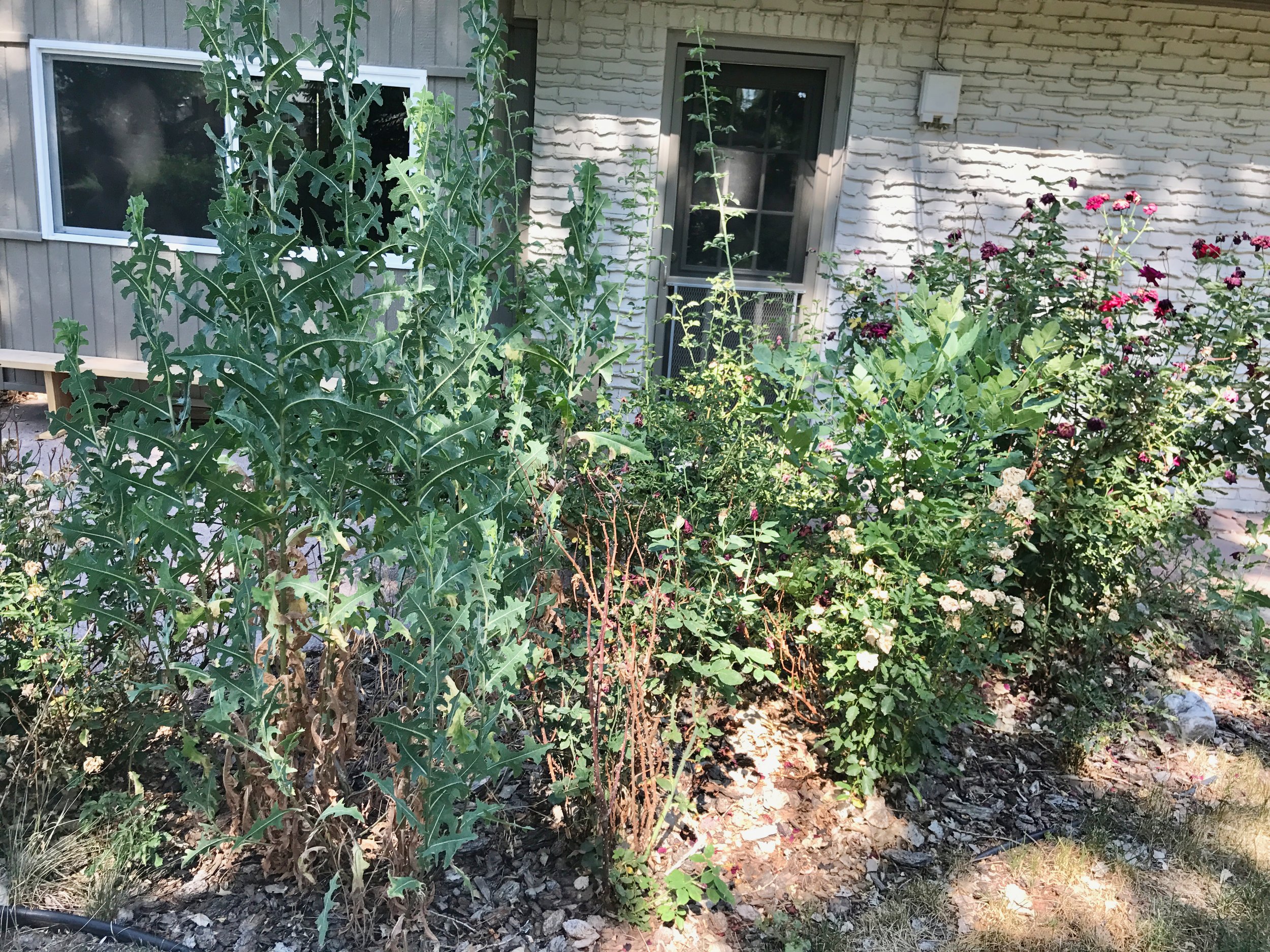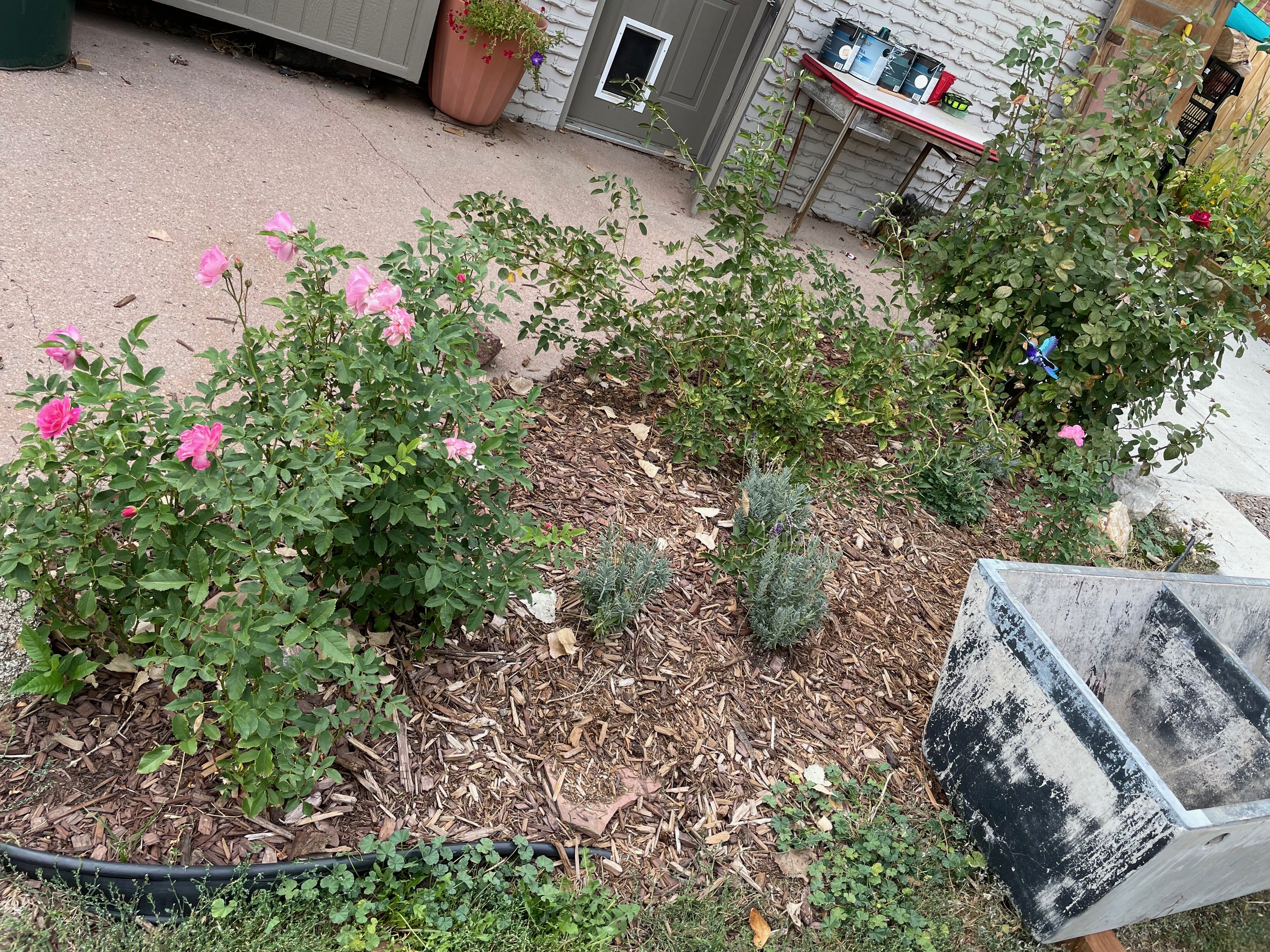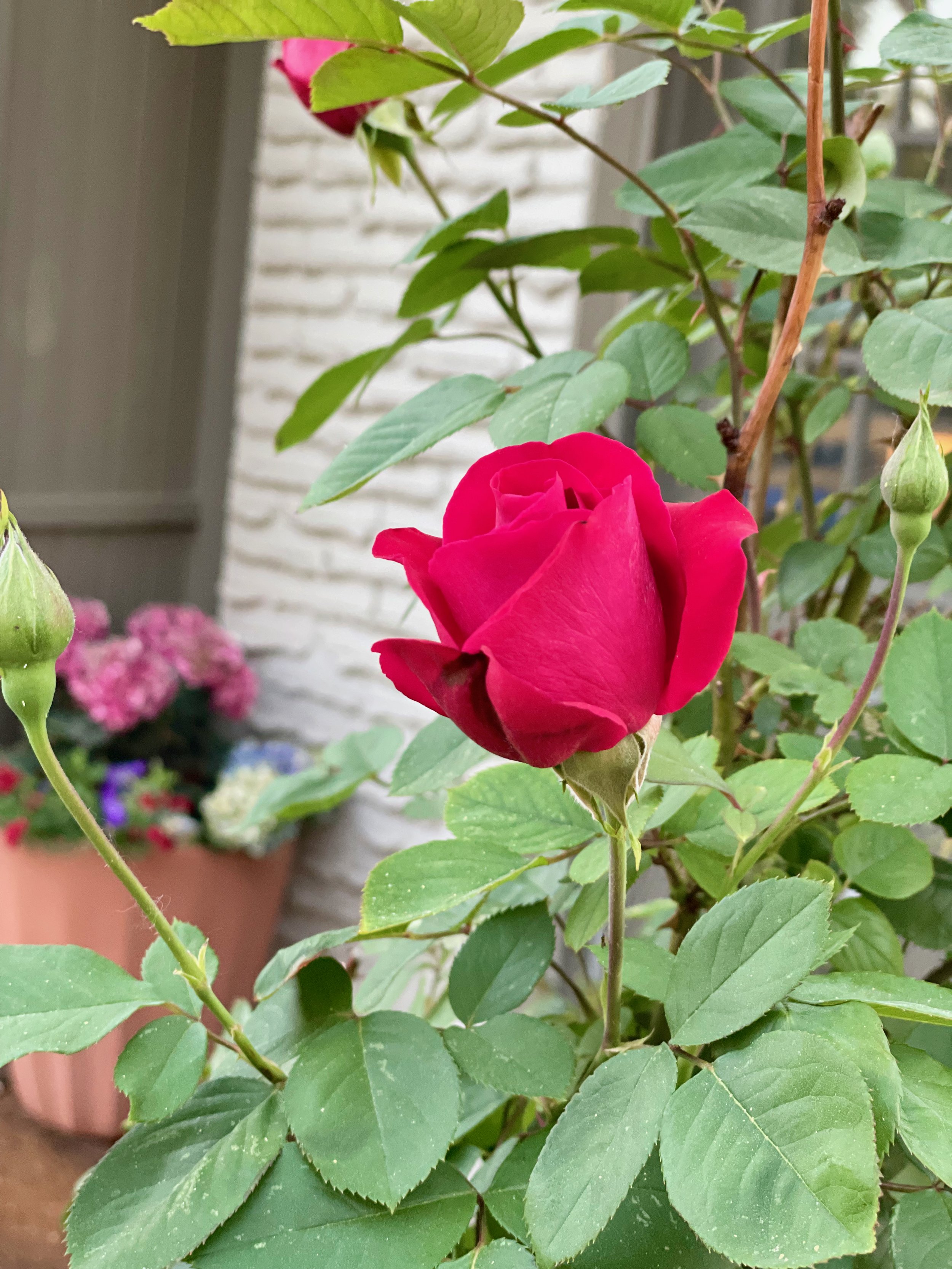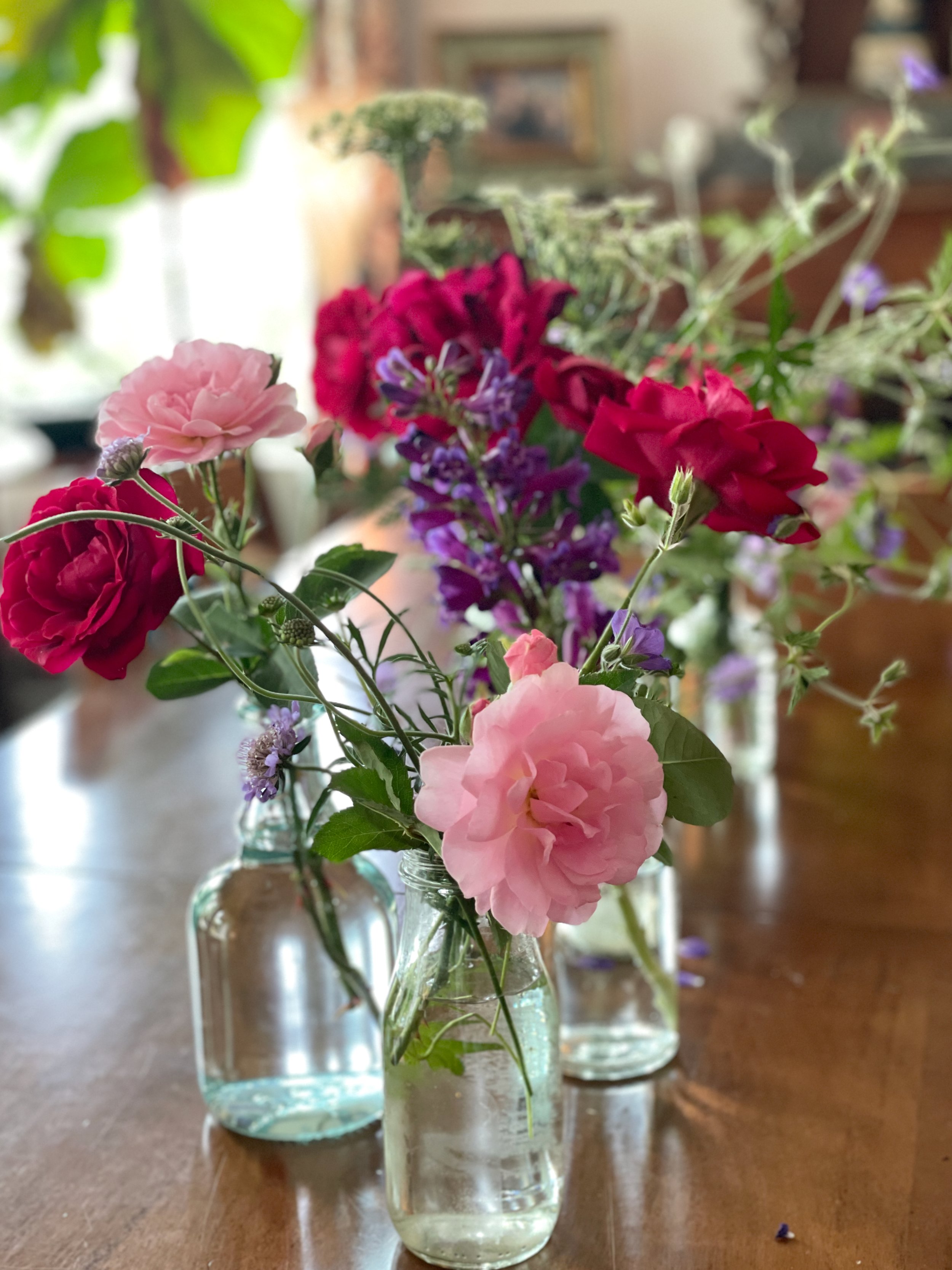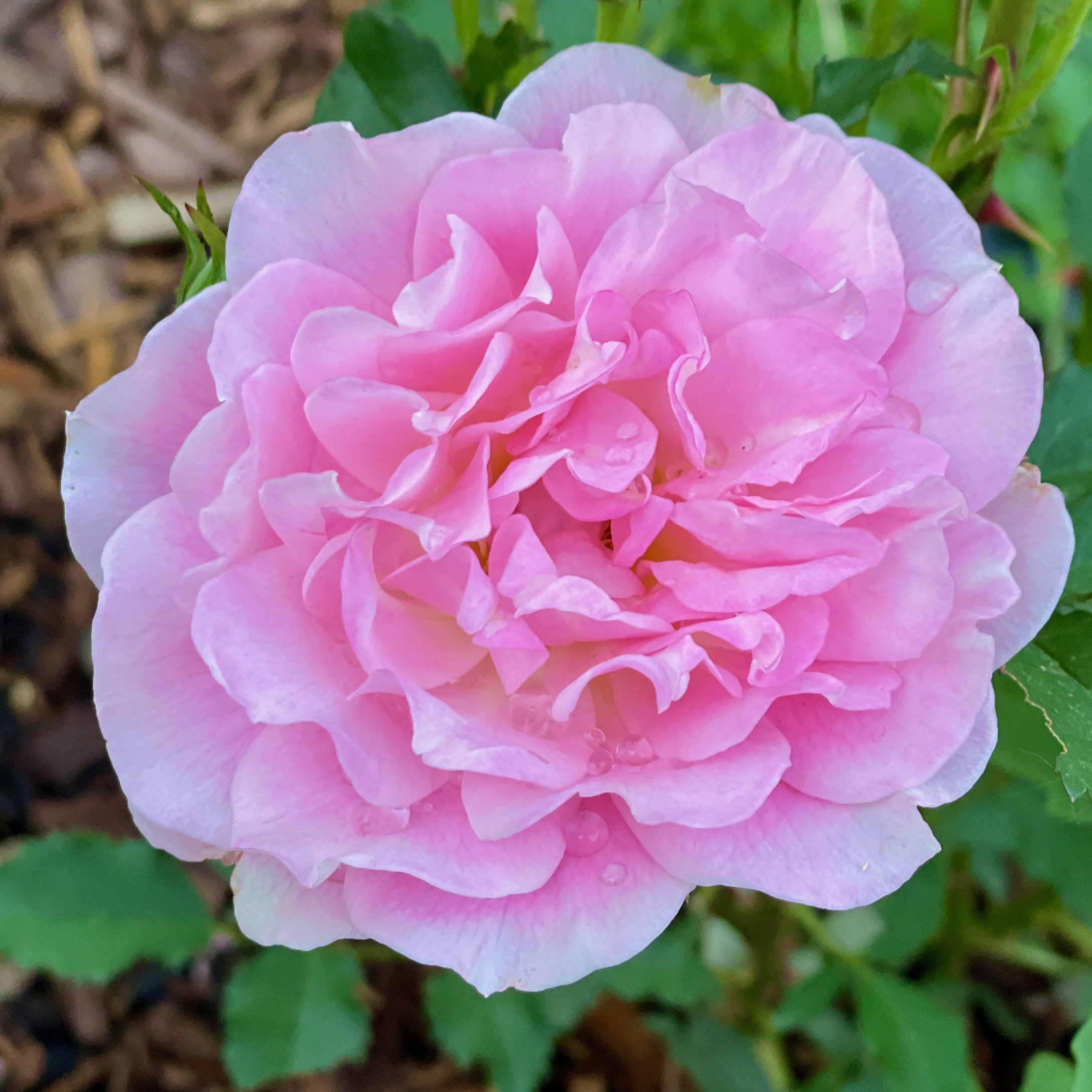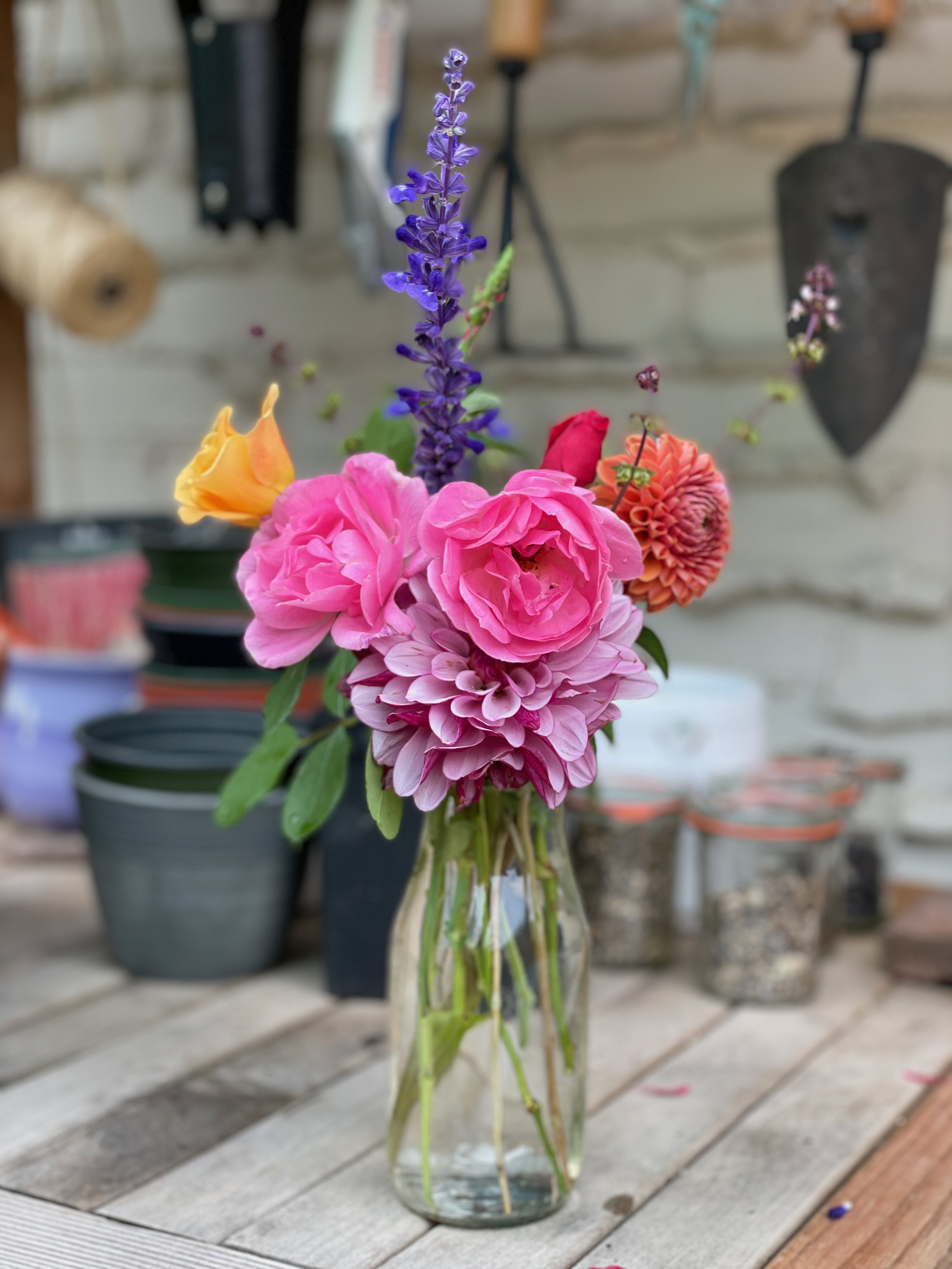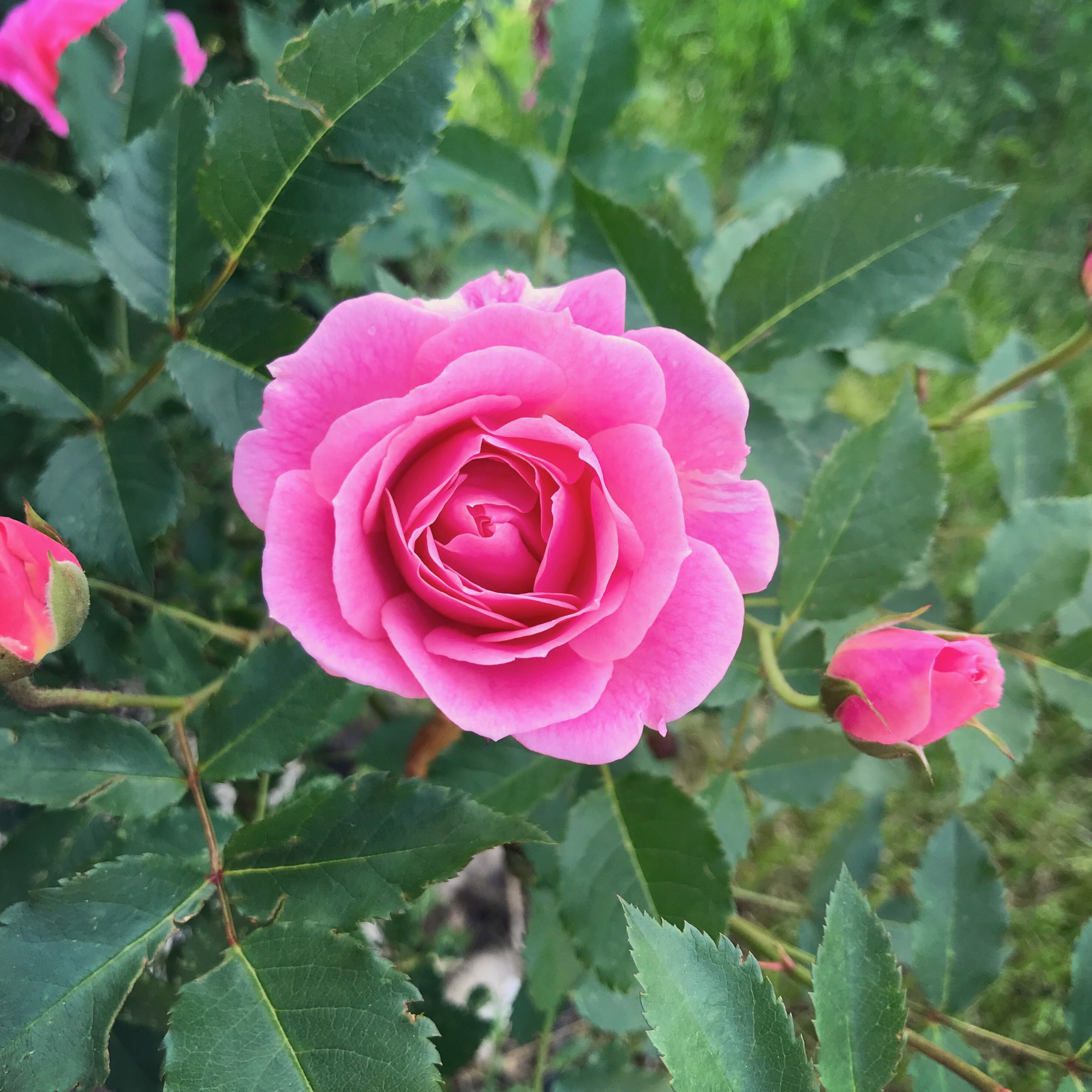How to Choose the Right Roses
Choose the Right Rose for Your Garden Every Time
Roses in my garden — many of which bloom from June until first frost.
In our first house in Sacramento we had a tiny yard dominated by a 200 year old oak tree. And in the middle of that tiny yard, a tiny rose bush emerged. I suspect it was a grocery store rose thrown out by the previous owners — maybe even a cutting. I don’t know. But it grew. And it grew. It was planted in a terrible spot, so I moved it. In fact, over the years, I moved it to three different locations. But that rose loved our yard. It grew from a tiny little sprig into a giant bush that clambered over the fence — and might even still be there. The thing is: roses have a reputation for being fussy, but they really aren’t.
It’s truly a matter of choosing the right rose plant for the right place! If you get it right, you will be rewarded for years and years to come.
When we bought our current house here in Colorado, it came with four rose bushes in the backyard. But I didn’t even see them at first. The rose bed was FULL of thistles and bindweed — but they were in there. And despite years of neglect, those roses kept going. Were they thriving? No. But after a few years of care, they are now!
My Rose Bed: Before and After
Our next door neighbor says that three or four rose bushes were planted in each yard in this neighborhood when the homes were built in 1958. From looking at the roses, I would say there is a good possiblity that at least one and possibly two of our plants are more than 60 years old. And the oldest rose in the world is believed to be about 1,000 years old! It’s in Hildesheim, Germany and is quite astonishing!
All of that is to say: roses don’t have to be fussy! Put the right rose in the right place, and you could have a very long-lived beauty.
How to Choose a Rose Plant for your Zone
So how do you find the right rose for your garden? There are a few key questions you need to answer:
Distant Drums
What is your USDA Zone?
Knowing your growing zone makes growing roses so much easier! Head to the USDA website and put in your zipcode. The map will zoom in to your location. I live in Colorado, and I grow in Zone 5. The zones are based on the average LOWEST winter temperature. I can expect it to get down to -15 most winters – and sometimes lower.
Crown Princess Margareta
What is your last frost date?
Another important piece of information is your last frost date. The Old Farmer’s Almanac can tell you the last date to expect frost by zip code. You don’t want to plant roses until after this date. That makes sure your tender little plant won’t get zapped by frost before it is established.
You can order any time during the year, though. Most mail-order rose companies will hold your roses and ship when YOU want them. So handy!
Wollerton Old Hall
What type of soil do you have?
Knowing what type of soil you’ll be planting into makes a world of difference. Roses don’t like to have wet roots, but they like plenty of water. So if you have clay soil, for example, mixing in a little sand will help drain away any excess moisture and keep your roses happy and healthy.
Once you know the answers to those questions, you can start to scroll through the roses from reputable rose sellers — filtering out the roses that won’t thrive in your zone.
Where to Find Lists of Roses By Zone or Zip COde
But what if you want more specific recommendations? Here are a few other places to look:
Gentle Persuasion
Ask a Local Master Gardener
Every state in the US and many Canadian provinces have Master Gardener programs, and they are a wealth of information. Many of them will have reliable lists of rose species that thrive in your part of the world.
I am a Master Gardener in my county, and I love answering questions and helping other people make the most of their gardens!
Hot Cocoa
Ask Your Neighbors
Does your neighbor have a rose that you admire? Ask what type it is — and where they got it! You could even ask for a cutting and try getting it to strike. Some roses grow very well from cuttings.
Darlow’s Enigma
Visit a botanical garden
Most botanical gardens have roses amongst their collections, and the lovely people who work there label everything, so you can easily spot roses you admire — and find out what variety they are. Go in June or July for the most beautiful displays!
Other Rose Facts to Know
Jude the Obscure
Rose Root Stock Matters
If you buy a rose at a big box store or even most garden centers, the rose plant will likely be grafted onto the root stock from a different variety. This can be advantageous if the root stock is truly hardy in your area. But it can also be a problem in some climates.
Here in Colorado, I have found that own root roses — roses grown from cuttings and NOT grafted — do much better here. It’s worth asking what kind of root stock a grower uses before buying a rose. In milder climates, this may not matter as much, but here in Colorado I’ve found this advice invaluable. My favorite source: Heirloom Roses.
Mme Alfred Carriere
Grow a Rose in a Pot
Last year I accidentally ordered a rose that isn’t successful in my growing zone. So rather than putting it in the ground, I planted it in a pot. When it gets really cold, I just bring it inside for a few days. Roses can’t live inside, but a few days during a cold snap are just fine. And there are many varieties that absolutely thrive in pots! This is a great way to bring roses with their heady scent and gorgeous blooms even closer to a seating or eating area, too.
Unidentified Pink Rose
The American Rose Society
There are thousands of rose varieties for sale in the world. Thousands. And there are thousands of rose devotees — people who grow their roses for sale, for show, and as a consuming passion. The American Rose Society has some wonderful lists of rose recommendations by region. They also have consulting rosarians who are available to answer questions and offer consultations — in person and virtually. Additionally there are many local rose society chapters which can give more localized recommendations, conversation, and community.
I hope you plant up some roses this year! They are a wonderful addition to any garden. My Instagram feed is full of roses all summer long. I hope you’ll follow along!
Happy Gardening!



